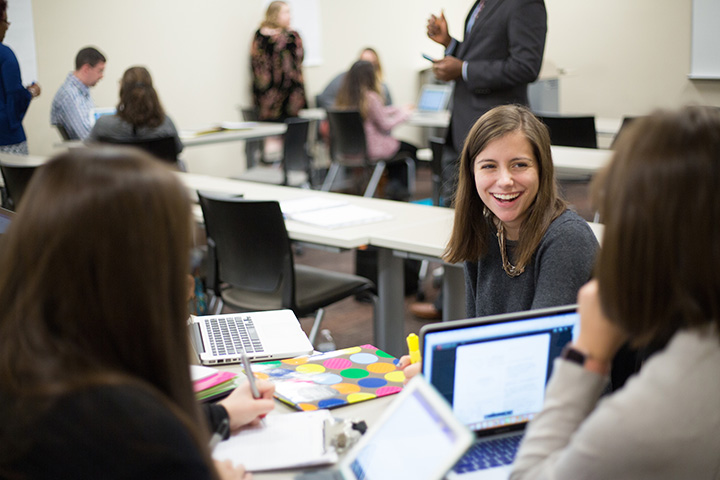
First time’s the charm — at least for students in Samford University’s Department of Social Work.
The Association of Social Work Boards (ASWB) recently released its 2022 report, and 87% of Samford social work graduate students passed the 2021 ASWB master’s licensing exam on their first attempt—the highest number in the entire state of Alabama.
For comparison, the state pass rate is 65%, and the national pass rate is 73%.
“Students are allowed to take the license exams as many times as they want,” said Lisa Baker, chair of the Department of Social Work, which is housed in Samford’s School of Public Health. “However, a first-time pass rate is reflective of a student’s preparation in the program.”
Licensure, Baker explained, is established by individual states to maintain the integrity of the profession and establish that practicing social workers meet minimum requirements in training and experience, thus able to provide competent and ethical services.
The state of Alabama licenses social workers at three levels: Bachelor, Master and Licensed Independent Clinical. Graduates from social work programs may take the Bachelor and Master exam after completion of their corresponding degree. Graduates may then sit for their clinical license after completion of a master’s degree and a minimum of two years of practice in a clinical setting.
Samford’s Department of Social Work offers a Master of Social Work, a fast-track option and numerous joint degree combinations, such as M.S.W./Master of Public Health.
Curricula focuses on advanced clinical practice, which equips students for direct practice with individuals, families and small groups. As such, graduates are prepared for practice in a wide variety of settings, including counseling centers, mental health and substance abuse treatment facilities, hospitals and clinics, schools, correctional facilities, child welfare agencies and others.
The high licensure pass rate, Baker said, is a testament to the department’s commitment to ensuring students graduate with the skills needed to become competent practitioners.
“When a social work student entrusts Samford with their master’s education, it is a decision that we value and respect,” Baker said. “We want to be good stewards of that student’s decision and resources and make certain they are getting an exceptional education that prepares them for professional and ethical practice.”
When Baker heard news of the licensure pass rate, she admitted she was not only encouraged, but motivated.
“It motivates us to build upon those numbers,” she said. “Licensure pass rates are just one outcome measure, and we know that there are often concerns about disparities within student populations. While it is an important indicator, the success of our alumni is the best example of the quality of our program. As part of our Christian mission, we believe that we are preparing all students to answer their calling in social work and, as such, are committed to their personal, professional and spiritual growth as it relates to practice.”
Learn more about Samford’s Master of Social Work here.
